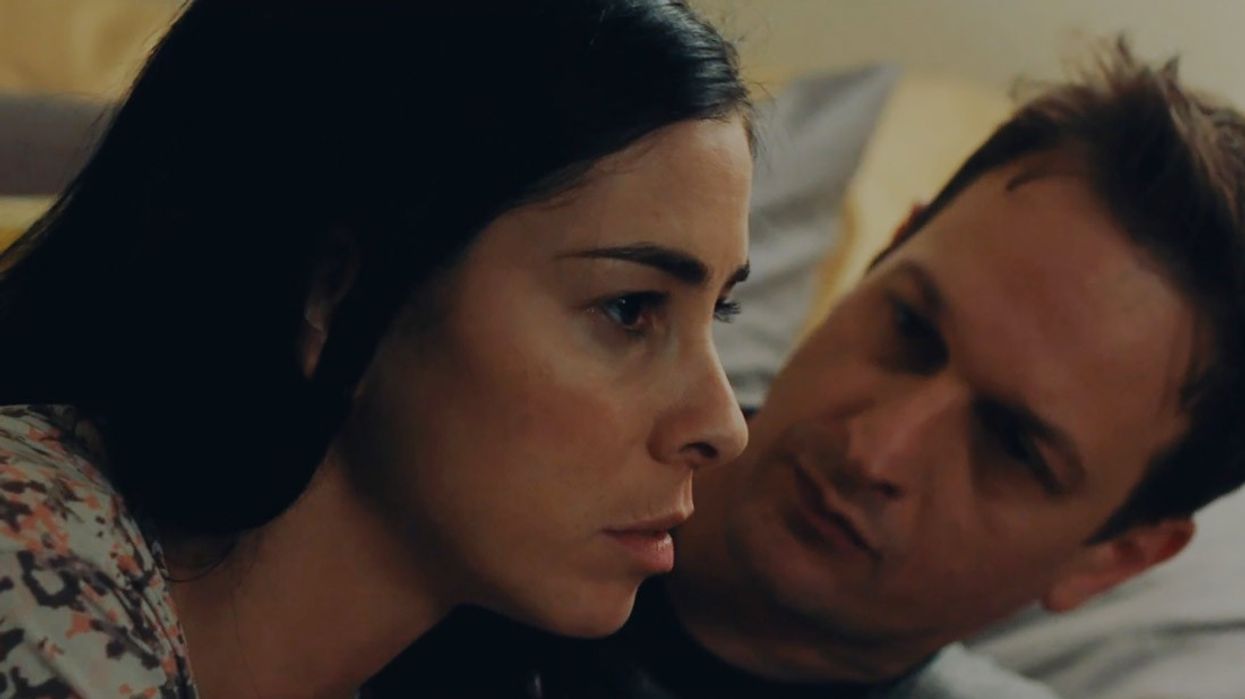'I Smile Back' Screenwriters Amy Koppelman & Paige Dylan on Adaptation, Collaboration, & Vulnerability
At Sundance, much of the focus is on the directors, many of whom are also the writers of their films. With this in mind, I thought it would be interesting this year to focus on the screenwriters of Sundance 2015 U.S. Dramatic Competition films who are not the directors of their films.

This series of Sundance screenwriter interviews will focus on how their projects evolved, how they approach screenwriting, and how (or if) they collaborated with the directors of their films.
First up, I had the opportunity to interview screenwriters Amy Koppelman & Paige Dylan via email for their Sundance film I Smile Back, based on Koppelman's novel, starring Sarah Silverman in the lead role of Laney. Silverman moves away from her traditional comedic persona and gives a dramatic performance as a suburban wife and mother dealing with her depression through reckless behavior.
NFS: Amy, when did you decide to adapt your book into a screenplay?
Koppelman: I didn't decide to adapt the novel into a screenplay until Sarah [Silverman] read the book and agreed to be in the film. Paige and I wrote the screenplay specifically with her in mind.
NFS: Was it difficult to distill the novel into a script?
Koppelman: It was difficult but doable. Paige’s objectivity made cutting scenes from the novel easier. Paige and I have been friends for over twenty years and since the moment we met, she had an uncanny ability to put my thoughts and feelings into words. I Smile Back is a very insular novel. Paige, because she knows and understands me so well, was able to identify and help me flush out scenes, which was vital to the process.
NFS: How did the two of you come together to collaborate on this screenplay? Was this the first screenplay for both of you?
K & D: We've been working on projects together for a number of years, but this is our first produced screenplay.
NFS: Tell us about your screenwriting process: How did the two of you collaborate to write the script?
K & D: We live on different coasts but the time difference usually works to our advantage. We work on a project on the phone first, then a frenzy of emails back and forth, more phone calls, until we can get it to a point where we need to get in a room together to finish it. That's when it gets really fun.
NFS: Did you write or rewrite any of Laney’s scenes to play to Sarah’s strengths?
K & D: We wrote the movie for her not to play to her strength as a comedienne but to her vulnerability as a woman. We wrote it for the Sarah in her autobiography who has a history of depression and anxiety.
NFS: Were there elements of the novel that you initially thought had to be in the script, but ultimately didn’t make it into either the shooting script or the final film?
K & D: Absolutely. But we had to make choices because including everything would have meant some things would have suffered. I think we'd rather leave something out entirely than just briefly touch on it and not give it the depth and importance it deserves in the story.
NFS: As the film’s producers, how did Brian Koppelman and David Levien, an accomplished screenwriting team, inform your writing process? Did they give you particular notes that were helpful? Or as fellow screenwriters, did they give you space to respect your craft and approach to the script?
K & D: We got great notes from Brian and David. They are both attentive readers and really generous with their time.
NFS: Do you watch Brian’s screenwriting Vines for useful tips?
K & D: Brian's main message is that if you want to be a writer, you have to ignore the little voice in your head that's constantly telling you that you're a fraud. His encouragement, over Vine, the telephone and coffee at the kitchen table has been invaluable.
NFS: What lessons about your screenwriting did you learn from the production of I Smile Back?
K & D: We learned to trust ourselves and our instincts on a much bigger level. We were fortunate enough to be on the set every day and watch these scenes play out, which was really an opportunity to learn how well, or not well, your writing goes over. We also learned not to get too attached to any scene [because] they often get sacrificed.
NFS: Tell us about your collaboration with director Adam Salky on set?
K & D: Collaborating with Adam was pretty straightforward. Our daily ritual was to review the scenes, watch the rehearsal, and revisit if necessary. Every so often we would tweak a line of dialogue to enhance the subtext, or address other ideas. It worked for us.
NFS: What has been the most unexpected part of your experience of being accepted into Sundance so far?
K & D: Hearing that our agent couldn't get a ticket to the I Smile Back premiere because it was sold out.
Our thanks to Morgan Michaels and Brooke Blumberg of Sunshine Sachs for coordinating this interview. Stay tuned for more exclusive interviews with Sundance screenwriters as the festival continues.












